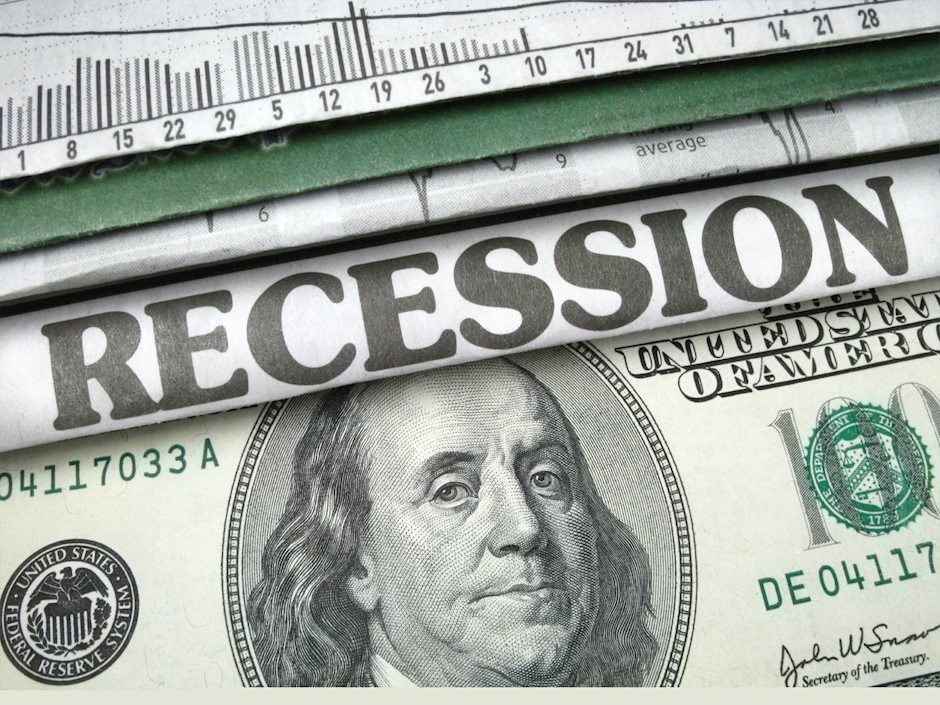Is a recession now inevitable?

Equity markets are experiencing another day of pain on Thursday as central banks continue to signal a willingness to sacrifice the economy in order to get inflation under control.
Central banks are full of surprises this week whether it's the Fed accepting a recession as the cost of price stability, the SNB raising rates by 50 basis points out of nowhere, the ECB holding an emergency meeting or the BoE seemingly crossing its fingers and hoping 11% inflation goes away on its own. What will the BoJ bring after a busy week in the bond markets?
The SNB hike was arguably the most surprising of the lot, with the consensus before being that they would stand pat and resist further strengthening the currency which has been boosted by safe-haven flows. Not only did it not, but it also hiked beyond all expectations and appears to have warmed to the idea of a strong franc. I'd be more amazed at the shift if the SNB under Thomas Jordan didn't have a history of sudden u-turns without warning.
Perhaps the most surprising thing about the BoE today was how underwhelming the policy response was. At a time when the central bank announced that inflation is now expected to peak above 11% in October, it also raised interest rates by a measly 25 basis points and didn't show a particular willingness to accelerate the tightening to combat those price pressures.
Of course, every economy is different and the MPC is clearly of the view that inflation will come down naturally over time, referencing the fact that energy and core goods account for around 80% of the inflation overshoot.
It seems quite the gamble though and one that could prove disastrous if it doesn't pay off but once more, markets and the central bank are taking drastically different views on the outlook for rates. The BoE appears ready to slow things down while markets are expecting multiple super-sized hikes in the coming months. Central banks haven't fared too well against the markets this year and it's hard to make a case for the BoE this time around.
Another central bank that's having a hard time is the BoJ which has been forced to fiercely defend its yield curve control policy tool this week. It's swimming against a vicious tide and conditions are becoming more treacherous by the day. Governor Kuroda has stood firm against any suggestion the policy should be tweaked but could the BoJ have one more surprise in store for us?
IEA offers a bleak outlook for crude
Oil prices are relatively flat on Thursday, after once again edging lower earlier in the session. Crude has been paring gains in recent days after a huge run higher over the previous month but prices are still extremely high. Risks remain tilted to the upside even as recession risks take some of the heat out of the market.
The good news just keeps coming in the oil market, with the IEA reporting today that it expects record global oil demand next year paired with supply struggling to keep pace as Russia is forced to shut in more wells and other producers are constrained by capacity. In other words, the market will remain extremely tight and prices high. A recession may ridiculously be the only hope for balance in the market and lower prices. Although refining capacity won't even hit pre-Covid levels next year which will continue to boost prices at the pump.
Gold recovery may not have legs
A volatile week in gold has seen it break through the bottom of the recent range only to recover a little around $1,800. A stronger dollar remains a major headwind for the yellow metal and in these conditions, it's hard to imagine it falling out of favour. Yields are continuing to rise and central banks are hiking aggressively in a desperate attempt to rein in inflation. It doesn't bode well for gold even in these risk-averse markets.
Another blow on the way for bitcoin?
Bitcoin HODLers must be getting a little nervous at this point despite their unwavering belief in the future of the cryptocurrency. The short-term outlook is pretty bleak for bitcoin and even recent headlines haven't been in its favour. With central banks everywhere raising rates and risk appetite taking a beating on a regular basis, the bullish case is getting weaker by the day. And a break of $20,000 could be the next major blow.
Author

Craig Erlam
MarketPulse
Based in London, Craig Erlam joined OANDA in 2015 as a market analyst. With many years of experience as a financial market analyst and trader, he focuses on both fundamental and technical analysis while producing macroeconomic commentary.

















